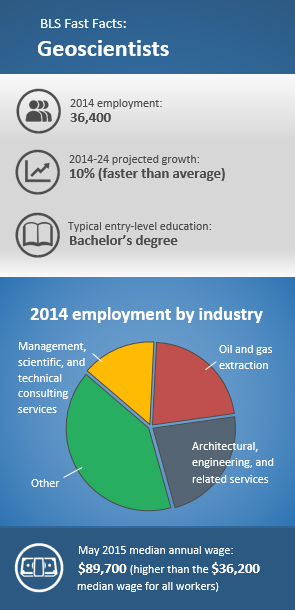All Categories
Featured
Table of Contents
Average Geophysicist Salary in Wellard Western Australia 2021
Are you looking for the right kind of b-school? Link with MBA programs looking for prospects like you. Check out schools of all sizes, ranked colleges, city and big-campus schools and more. Apply. Pay. Prep. Research study. Prosper. We have actually got you covered. Connect with master's programs around the nation to get an edge over the competitors.

A geophysicist studies numerous elements of the earth. According to the U.S. Geological Survey, they study gravity, magnetic, electrical, and seismic activity events. Geophysicists also document, examine, and take measurements of geographical features and anomalies. Watch a video to discover what a geophysicist: Geophysicists need to earn a minimum of a bachelor's degree; however, this is for an entry-level position.
If you want study you should pursue a Ph. D. Undergraduate coursework typically includes geology, mathematics, ecological science, or physics. Advanced degrees need more particular studies in the specialized of option. Areas can include oceanography, climatic physics, climatology, planetary, petroleum, environmental, and mining. Job prospects are higher if you have a strong background in computer system science or technology.
What Is Geophysics? in Yangebup Aus 2020
Access to these chances may be limited depending on where you live; nevertheless, internships or summertime programs with geophysical business, university geophysics department, or the U.S. Geological Survey can be choices. You can find a list of a list of opportunities on the United States Geological Study (USGS) websites' Pathway Programs tab (opens in another link).
Geophysicists also work with computers while investigating, so computer system courses can also be valuable, as discussed earlier in this post. Numerous geophysicists specialize in an area of geophysics.
A geophysicist's tasks can consist of measuring, tracking, and documenting information from various physical properties on earth. They also examine and exam information got. Geophysicists typically need to take a trip worldwide to analyze geological events that have happened or may have been predicted. Geophysics is a research-based career field, for that reason one should have the capability to hypothesize, problem-solve, and question or obstacle previously held presumptions from their collected data.
Geophysical Surveying - Methods And Applications in Singleton Aus 2023
For instance, Jay Wellik, a geophysicist, research studies volcanos. His location of expertise in geophysics is researching why volcanos emerge and what signs there may be that an eruption might occur. He tracks seismic activity and after that follows what happens previously, throughout, and after a volcano erupts. Geophysicists generally work full-time hours; nevertheless, they often work irregular hours, as pointed out previously.

You can find extra information about Geophysicists along with extra academic products on the U.S. Geological Study site (links open in a new window). Laura Stern, of the U.S. Geological Survey at the Gas Hydrates Lab in Menlo Park, California: We make a variety of various hydrates in the lab.
We likewise make carbon dioxide hydrate, ethane hydrate, propane, a number of different structures. Liquid nitrogen is extremely cold. It has to do with 100 degrees colder than the temperature level at which these hydrate samples would dissociate, when they would decompose to ice plus gas on the tabletop. In here we have a little piece of methane hydrate.
Geophysical Survey Services in Cardup Australia 2020
They look like snow, it looks like compacted snow but truthfully, it does consist of gas inside. It's reverting to ice plus gas and then as the ice would melt as it continues to warm, it will end up being water plus gas.
My name is Steve Kirby, I'm a Geophysicist here at the U.S. Geological Survey in Menlo Park. I deal with Laura Stern who is likewise a Geophysicist in this laboratory that is devoted towards the examination of planetary ices and gas hydrates. Gas hydrates in nature take place in very remote places and they are really complicated with the interactions and conditions that they form under and samples that are brought up are under some sort of alternation or decomposition.
This is an unusual lab and there are only a handful of them worldwide and we are extremely fortunate to be here at the Geological Survey and to have the chance of dealing with them. Bureau of Labor Data, U.S. Department of Labor, Occupational Outlook Handbook, Geoscientists. National Center for O * Internet Advancement.
Working As A Geophysicist And Oceanographer In Canada in Yokine WA 2022
This video was produced by the government for the U.S. Geological Study. The USGS Gas Hydrates Lab is funded by the Department of Energy and the USGS Gas Hydrates Job.
Latest Posts
What Geophysicists Do in Iluka WA 2023
Geophysical Survey Definition in Casaurina Oz 2021
Geology And Geophysics - Careers And Employment in Manning Aus 2022